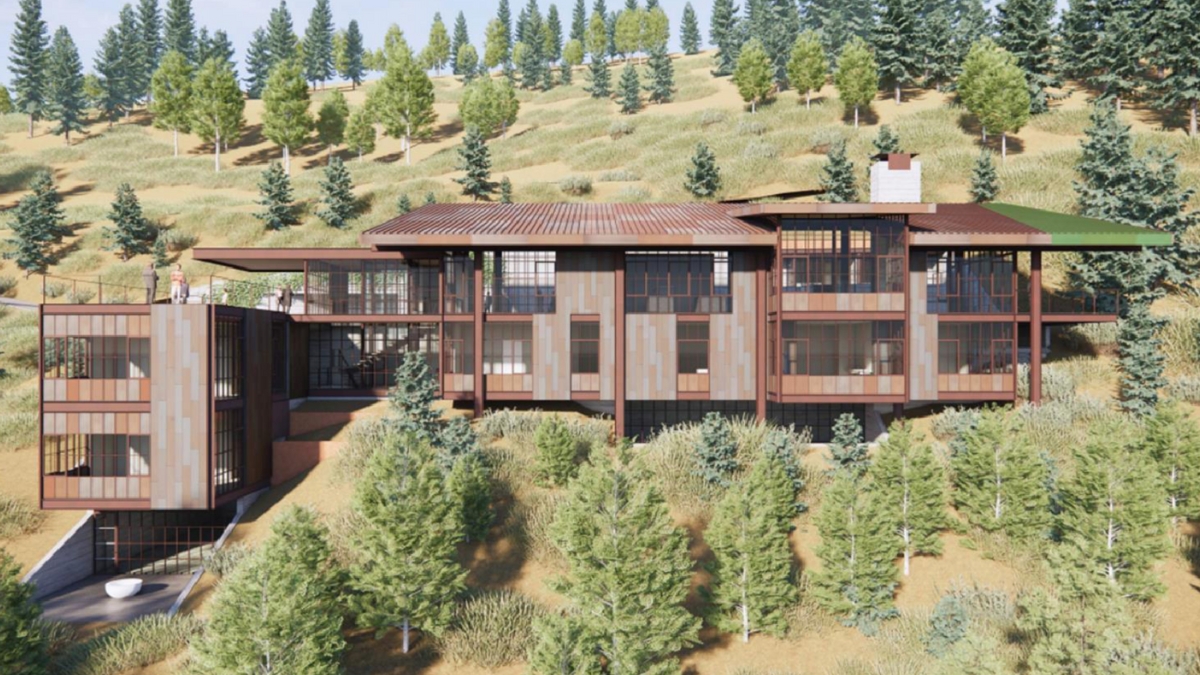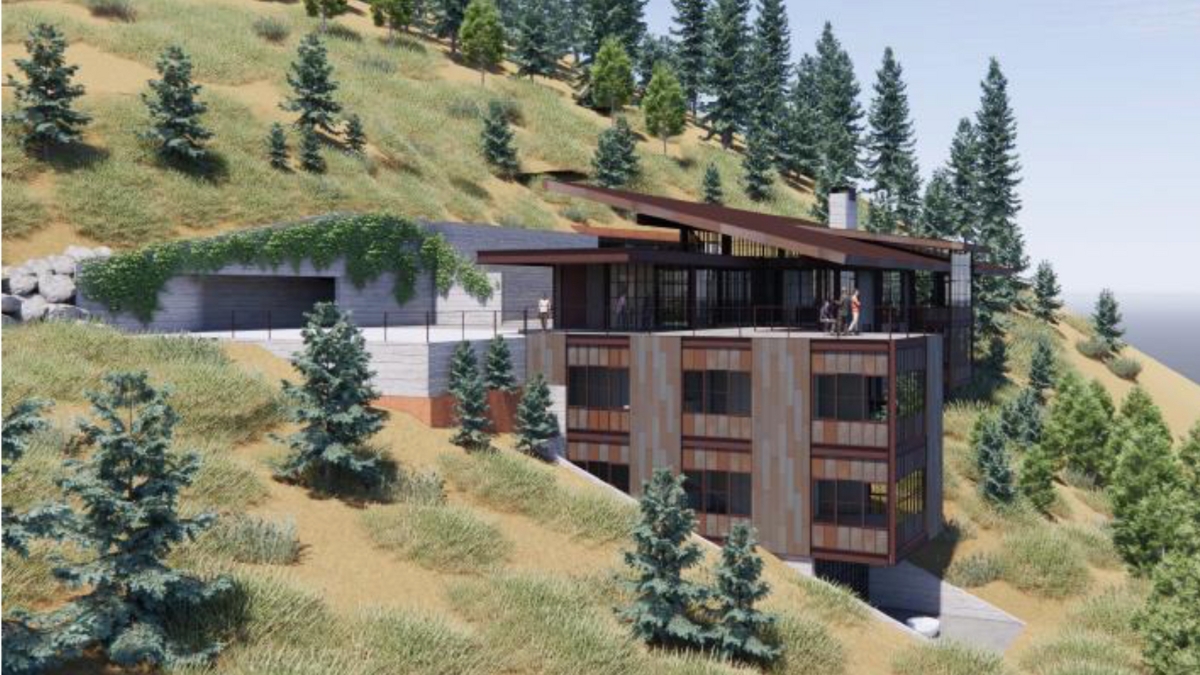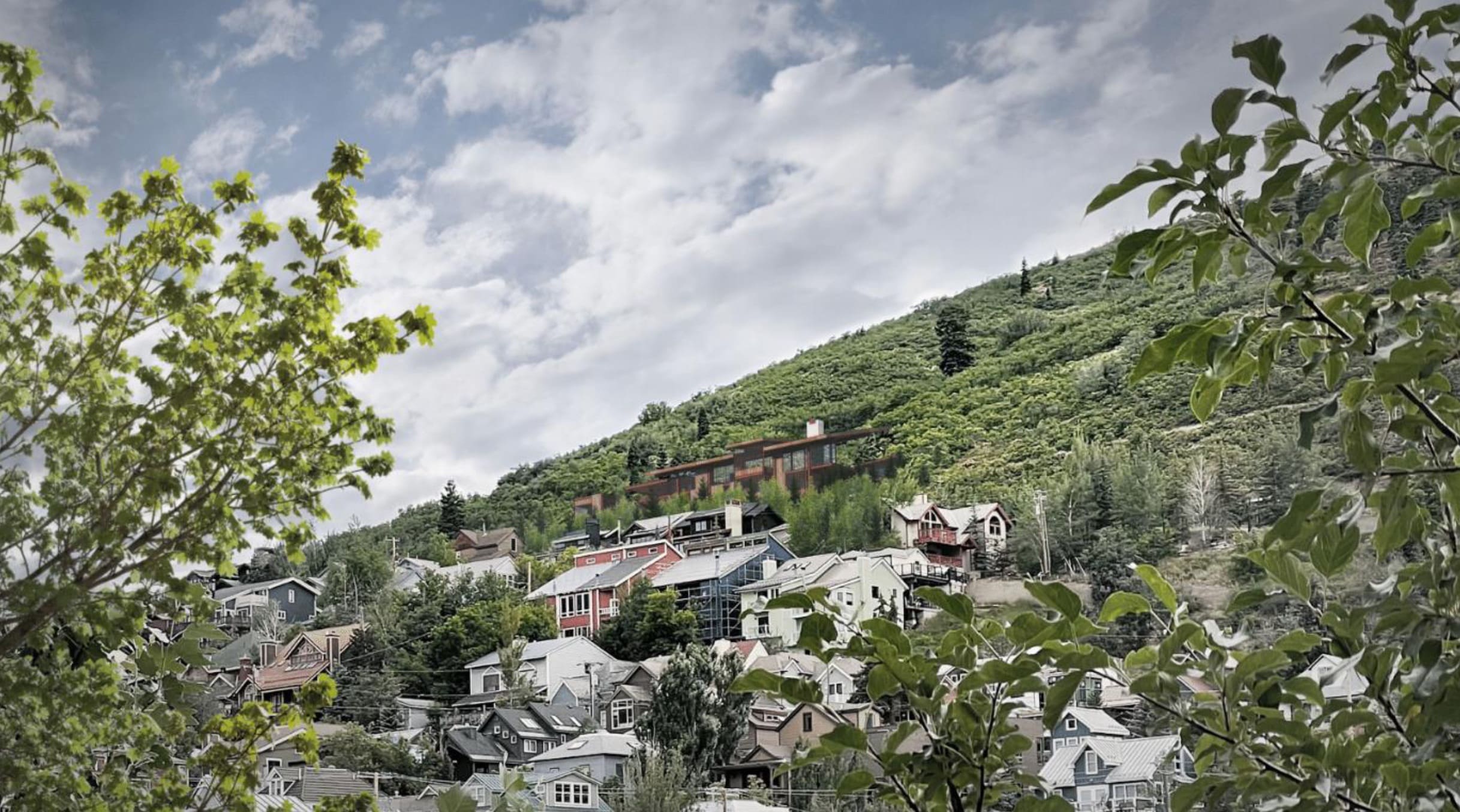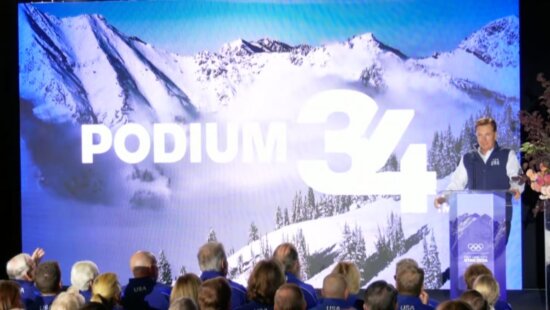Town & County
Prince argues against roof reduction condition, cites lack of planning authority

Olson Kundig Design rendering for Prince home on King Road full back view. The green area highlights the roof required to be removed as an HDDR condition of approval. Photo: Park City Municipal // Olson Kundig rendering
PARK CITY, Utah – The King Road saga continues as it heads to the Board of Adjustment hearing on Tuesday, Nov. 12, when it will hear an appeal from Matthew Prince about the conditions that accompanied the project’s Historic District Approval and an appeal from Prince’s neighbors, who say the mansion’s design violates Park City’s historic code.
The Prince’s appeal argues that the Park City Historic District Design Review (HDDR) Planning Director made an error by imposing Conditions of Approval requiring a reduction in the roof overhang and modifications to the east-facing façade glazing (windows) to align with Historic Structures. The appeal asserts that prior approvals from the Planning Commission for the CUP and SSCUP vested the project. Therefore, no further structure changes should be mandated under the HDDR application. Additionally, the appeal claims that reducing the roof overhang would significantly burden the proposed home, as the overhang provides shade for the terrace.
The proposed residence at 220 King Road, owned by Prince, Cloudflare billionaire and Park Record owner, through Pesky Porcupine LLC, has divided city officials and neighbors over what constitutes appropriate development in Park City’s historic district.
Prince’s plans call for a contemporary structure with industrial design elements drawn from buildings like the Silver King Mine. The project would replace two existing homes on the 1.23-acre lot with a single residence featuring approximately 7,461 square feet of finished space, 5,898 square feet of unfinished space, and a 1,103-square-foot accessory building.
Neighboring property owners Eric and Susan Fredston-Hermann have also appealed the city’s Historic District Design Review approval, arguing through their attorneys at Hoggan Lee Hutchinson that the design violates multiple preservation guidelines meant to protect Old Town’s residential character.

While city staff approved the design with conditions, in the appeal brief submitted to the City, Justin Keyes, attorney for the Hermanns, said that the expert Park City hired to evaluate the Prince home distills the problem to its essence in evaluating whether or not the project met Park City’s HDDR guidelines.
“Design Guidelines explicitly require that new infill residential buildings be compatible in mass and scale with historic residential buildings to reinforce visual unity in the historic district and/or residential zone. The prominent and highly visible location of 220 King Road only increases the importance of complying with this and other guidelines to reinforce visual unity and maintain existing rhythms and patterns of the nearby streetscapes. Because the guidelines are so clear on this point, a variance from the Board of Adjustment would be required to permit the design as proposed,” the SWCA Environmental Consultants report read.
However, Prince did not seek a variance, and his lawyers, Bruce Baird and Wade Budge, succeeded in gaining HDDR approval in August.
That decision by planning staff, Keyes said, is unsupportable.
Baird said the Hermanns rely almost exclusively on the third-party consultant report regarding a different design.
“This isn’t the first time the Hermanns have ignored changes in reality in making their appeal,” Baird said.
Baird added that Prince is appealing the HDDR conditions that were attached to the plans’ approval in August because “they are not justified for historical reasons.”
The Board of Adjustment must determine whether Planning Director Rebecca Ward erred in approving the design with conditions including reducing roof overhangs and modifying windows to better match historic patterns.
If the board upholds the appeal, Prince would need to modify the design significantly. If denied, opponents could appeal to district court, extending a review process that began in 2022.
Eric Hermann, Prince’s neighbor on Treasure Hill, said the Planning Department has accommodated Prince by redefining the legal HDDR concept of neighborhood.
“This not only flies in the face of common sense, it contradicts the text of the Sweeney MPD which states that Sweeney lots will be governed by the HR-1 rules at the time of building application,” Hermann wrote in an email.
The hearing comes as Park City grapples with broader questions about preserving its mining town character amid pressure for larger homes and modern amenities in its historic districts.
The Board of Adjustment hearing is scheduled for Tuesday, Nov. 12, at 5 p.m. at Park City Council Chambers or via Zoom.


















